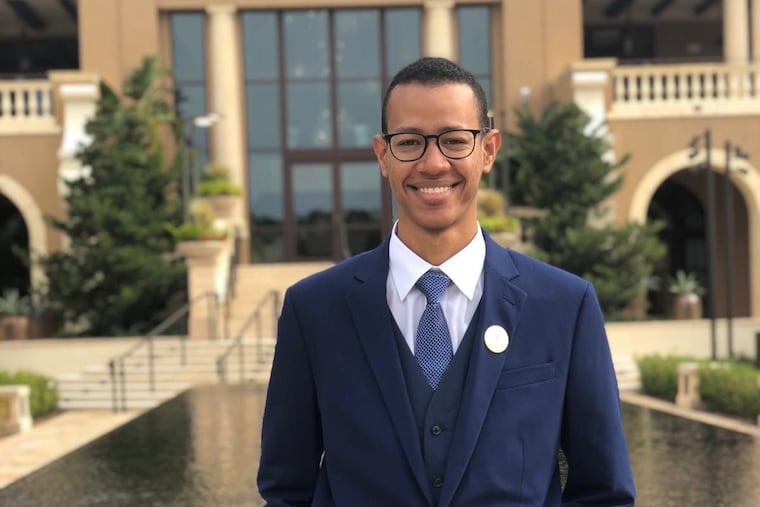Some students, like me, come to the U.S. from war-torn areas. Few succeed. | Opinion
I know how hard it is to start in the U.S. from zero because that is exactly what I did. I can say with some authority: We do not have a built-in support system for these students.

In May 2016, I emigrated from Yemen, a country isolated from the Western world where people still use camels as a form of transportation. I received a scholarship from the Hadhramout Foundation to attend college in the U.S. or Canada. My first interaction in the U.S. was at the airport, where an immigration officer asked me: “What is the reason for your visit?” But I could not answer. I did not know any English.
Every year, thousands of international students come to Philadelphia to study. Yet many are ill-equipped to integrate into Philly life, and college campuses are not well-equipped to help them.
Many of these students are what I have come to call “zero-generation” students — they come to the region from environments of trauma and violence, poverty and stress, and build linguistic and cultural competencies from zero, while simultaneously trying to get a college degree.
Take, for instance, an Afghan émigré, Zakera Azizi, who fled the war in Afghanistan to pursue her education in the United States. “I’ve started from zero several times in my life,” she told the University of Miami, where she is pursuing her master’s degree. Although we come from distant and distinct backgrounds, we share a similar pain of growing up with — and leaving our homes because of — war.
» READ MORE: Philadelphia needs ‘sanctuary schools,’ immigrant rights group demands
I know how hard it is to start in the U.S. from zero because that is exactly what I did. During my early days here, fear paralyzed me, so I exclusively socialized within an enclave of newly arrived Arabic-speaking immigrants. I was unassimilable. It took me four years to overcome that fear, to begin assimilating and integrating myself with my new home. I had no role models to follow, so I coped with countless challenges, proceeded with caution, followed a trial-and-error model, and over time, learned to avoid repeating mistakes.
I needed countless translators — first from Arabic to English, but then, as I pursued a graduate degree at the University of Pennsylvania, I needed help translating from plain English to academic English.
I can say with some authority: We do not have a built-in support system for zero-generation students in the U.S.
I had numerous teachers who were sympathetic to my nonnative English status, so much so that they would expect and accept even mediocre work. But I did not just want a degree for the piece of paper; I wanted to learn. To get better at reading and writing, I visited the Penn Writing Center, but too often the instructors just told me what was wrong with my writing while not taking the time to tell me how to fix it.
This is not enough help for zero-generation students, who are just beginning to learn English. They do not have an expansive language repertoire to make alternative edits to their writing.
In the end, to get to where I am now, I had to rely on a lot of self-study, teach myself how to write in English, and read constantly and voraciously.
But not every zero-generation student has the time or ability to do this. The friends I made who received my scholarship now work in gas stations, ethnic restaurants, or other jobs that do not require college degrees. Only a few of us among the zero-generation students continue in the academic or professional world.
“The friends I made who received my scholarship now work in gas stations, ethnic restaurants, or other jobs that do not require college degrees.”
To offer more support to zero-generation students like me, who will keep coming to the U.S. from war-torn areas (including Ukraine), we have to give them more of our time and energy. These students need more than simple critiques in a one-hour session at their school’s writing centers; they need someone who will correct their work line by line and explain how to fix it. And they will probably need this help with multiple assignments. In the meantime, professors should still hold students like me to high standards, so that they can learn the material while they are learning English.
Eventually, I had one teacher who was both demanding and supportive, going above and beyond in explaining academic and professional writing. As a result of this mentorship, my academic performance has improved.
Thanks in part to this teacher, and others, I can continue my academic work. In the fall, I plan to start a doctorate program.
Abdulrahman Bindamnan just completed his master’s in international educational development from the University of Pennsylvania Graduate School of Education.